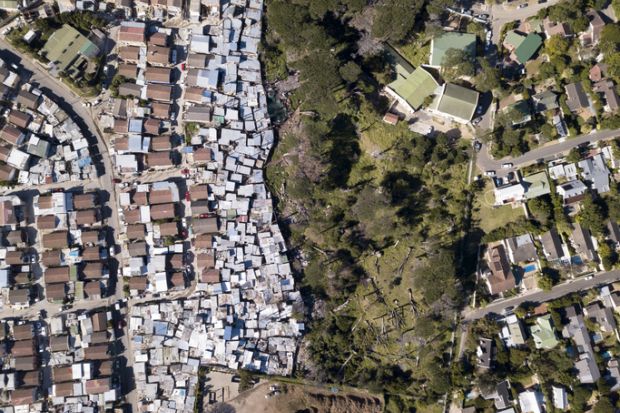South African vice-chancellors have been criticised for accepting large pay rises while the sector faces a financial crisis.
Analysis by Times Higher Education of university annual reports reveals that the average total pay package for a vice-chancellor was R5.3 million (£222,000) in 2022, with the average annual rise across the 12 institutions that have released data standing at 8 per cent.
This follows the long-awaited publication of a report by the Council on Higher Education (CHE), which found that vice-chancellors’ “generous remuneration packages and spiralling above-inflation increases” were facilitated by weak institutional governance and accounting practices.
Jonathan Jansen, distinguished professor in education at Stellenbosch University, said government guidelines might be needed to rein in executive remuneration.
“It is quite frankly a disgrace that vice-chancellors earn this kind of money on the very campuses where many [students] are not sure where their next meal will come from,” said Professor Jansen, former vice-chancellor of the University of the Free State.
Of the 12 pay packages for 2022 disclosed so far, the largest was at the University of Johannesburg, where former vice-chancellor Tshilidzi Marwala took home R9.3 million, including a “merit and other payment” worth R4 million. This compares with total remuneration of R6.3 million in 2021.
At the University of the Witwatersrand, Zeblon Vilakazi earned R6.4 million in 2022, while Mamokgethi Phakeng was paid R5.3 million during the penultimate year of her tumultuous tenure at the University of Cape Town. Wim de Villiers was paid R5.1 million by Stellenbosch.
The National Tertiary Education Union said it was a “significant concern” that less than half of South African universities had published their annual reports and included details of executive salaries, warning that institutions “are not immune from public accountability”.
“When financially poor students are unable to access higher education institutions due to the fees set by these institutions, it is morally bankrupt for vice-chancellors to be accepting [large pay] increases,” a union spokesperson said.
The CHE report found that vice-chancellors’ average salaries grew by more than 200 per cent between 2005 and 2019. And it said that some leaders enjoyed benefits such as houses, vehicles and staff that were not always declared in reports.
When considering relative costs, the CHE found, South African vice-chancellors earned more on average than their counterparts in Canada, New Zealand and the UK. And it found little connection between executive remuneration and institutional performance.
Register to continue
Why register?
- Registration is free and only takes a moment
- Once registered, you can read 3 articles a month
- Sign up for our newsletter
Subscribe
Or subscribe for unlimited access to:
- Unlimited access to news, views, insights & reviews
- Digital editions
- Digital access to THE’s university and college rankings analysis
Already registered or a current subscriber? Login








